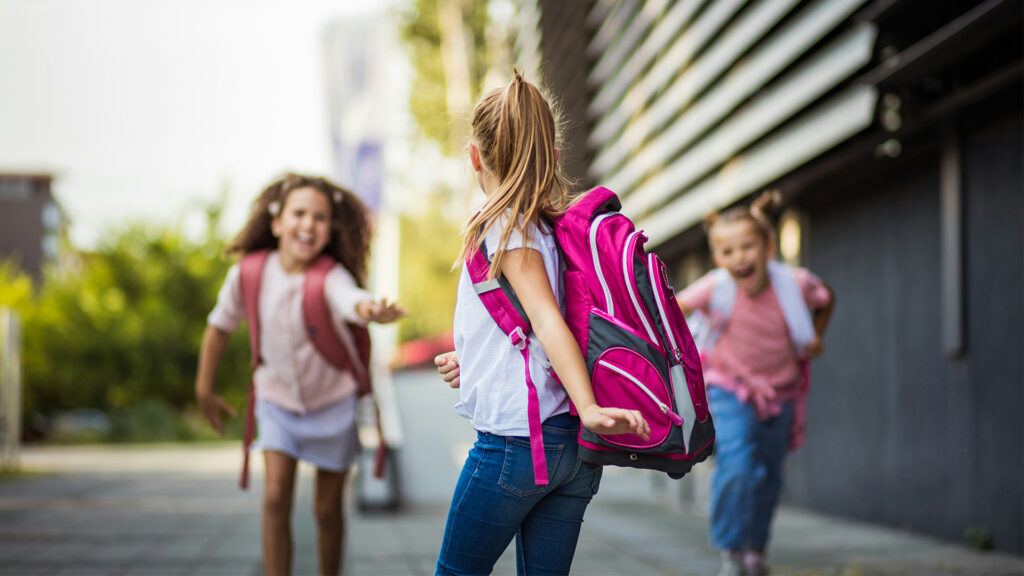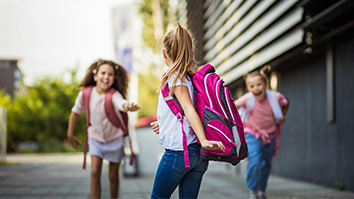
Three experts offer actionable strategies to navigate social media, sleep, and helping prepare children for new routines.
Back-to-school can be a challenging time for families. SRI researchers offer insights to help manage the transition.
Managing social media
Several studies find that frequent social media use over time is associated with higher symptoms of depression and anxiety, says Dan Cohen, a senior education researcher at SRI. But there are a few approaches that parents, schools, and educators can take to help young people manage what is an essential part of their lives.
First, he says, parents can start early in their child’s life by setting limits and explaining the healthy and harmful ways to use social media and its potential effects on well-being. As children get older, he says, it becomes difficult to control access, so it is critical for parents to model healthy behaviors and help kids develop an understanding so they can make thoughtful decisions.
Schools may be able to reduce potential problems by promoting social norms around healthy use of social media, he says. Messaging of this nature is most effective when promoted by peers, but health education programs can also help by discussing potential risk factors, including misinformation about mental health and suicide, and by providing evidence-based ways to cope with issues.
He notes that rigorous studies are still needed to assess the effects of varying approaches on social media use and their associated mental health outcomes.
The importance of sleep
Sleep is essential, says Orsolya Kiss, Sleep Research Scientist at SRI, so she says parents should engage in conversations about sleep habits with their children and make sleep a priority for the whole family, rather than impose strict rules.
Kiss recommends that parents engage with kids about sleep, routine, habits, and how they feel when they wake up. By starting with a conversation about sleep, she says, families can work together on a mutual plan. And the planning process helps give kids decision-making power.
Heavy use of screens can have a dramatic impact on sleep, she says, so she suggests that planning includes establishing screen-free zones and time blocks, or even screen allotment periods, such as after homework or before dinner.
Screen time for school readiness
Parents often think of school readiness in terms of academic skills: Does she know all her letters? Can he count? But being ready for school is much broader than that, says Claire Christensen, Senior Education Researcher. It’s also about adapting to change, and for young children, favorite media characters can help with preparation.
Whether it’s their first time riding a school bus, carrying a backpack, or eating a packed lunch, children may feel more comfortable by playing and talking about what will happen, and media can help. Many TV and YouTube programs have characters and plots with new experiences like these: Blippi riding a bus. Miss Rachel making friends. Daniel Tiger’s reminders about grown-ups always coming back.
Watching videos can inspire play and discussion that helps kids be comfortable and familiar when school starts. Christensen says these kinds of familiar media characters can help prepare young children for school transitions, and for success.
To learn more about sleep research at SRI, visit the SRI Human Sleep Program page. For more information about SRI’s Education division, visit the Education page.



